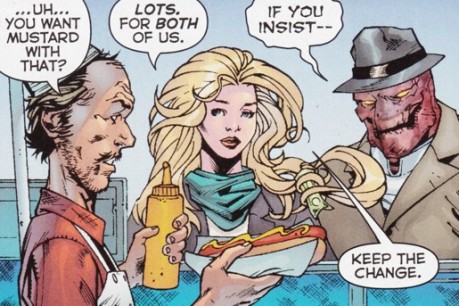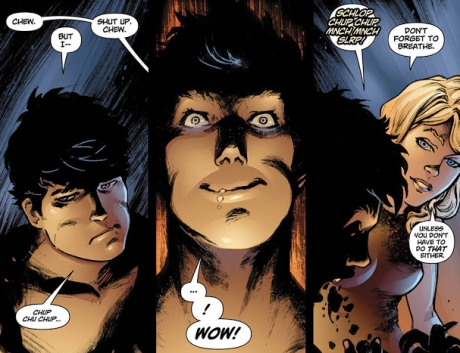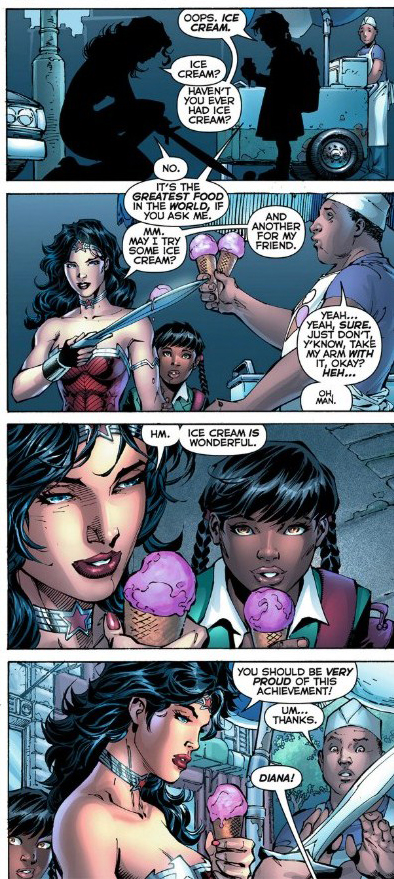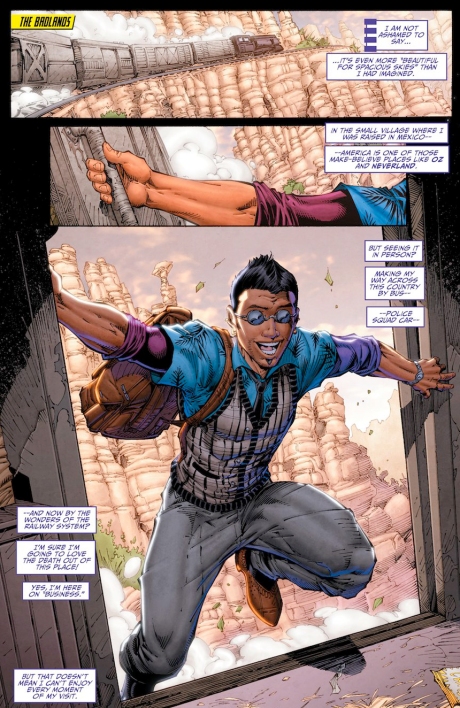One of the most efficient devices employed to distinguish a character from the setting in which that character has been placed is to have that character encounter something commonplace in the setting, but alien to that character. Examples of this abound, particularly in television and film- two mediums that lend themselves too easily to intellectual laziness. When exploring the idea of time travel, this trope is particularly over-used- think Encino Man, Dark Shadows, Captain America, etc. Seeing someone from the past or future encounter the present fills the contemporary audience with some flimsy pride- “I’m so much informed about physics than Captain America because I know who Stephen Hawking is!” when a much better assessment might be who understands the work of Einstein or Feynman better. I suppose we should forgive our story-tellers for relying too frequently on this crutch as it continues to serve effectively in creating an atmosphere and pleasing the herd. In cases of time-travel, the joke is overused, but not particularly offensive. Its humor somewhat simple and too familiar, but capable of accomplishing its objective because of that simplicity and familiarity.
In addition to time travel, this device is often used to show how alien aliens are, how robotic robots are, how foreign foreigners are- to identify the outsider. In these cases, the joke can feel a bit more like bullying and certainly more ethnocentric. The relationship between comic books and cliché is important- it gives pop art its substance. In both plot and art, the comic book works from the necessity to establish identifiable types and, like other mediums of artistic expression, the comic book works best when it uses those types against themselves. Recently in the New 52, DC Comics employed this trick- not once, not twice, but thrice! (possibly more, I don’t read every DC title)
1. In Justice League International, the British hero Godiva introduces her Chinese teammate August General in Irons to the exotic food that every 20th Century American child aspired to be: hot dogs. Following the tradition of this trope, August General in Iron is baffled by the strange item and Godiva feels like an ambassador of holy truth. This one’s pretty dumb because Chinese people love themselves some sausage. Sausage has been a part of the Chinese diet for a long time and while hot dogs were introduced more recently, they’ve been in China for more than a century and have infiltrated Chinese daily life (usually eaten on stakes rather than in buns) to such an extent that surely August General in Iron had many opportunities to eat a hot dog before joining the JLI. (pictured at top of article)
2. In Superboy, Cassie and Kon-El find themselves on a mysterious island shaped like a question mark. Like any teenager would in this situation, Cassie makes her first priority skinny-dipping and her second finding food. Superboy understands neither bathing nor eating because he’s an alien clone only months out of his test tube. Like Godiva, Wonder Girl becomes a somewhat sexualized ambassador of truth- tada! Boobs and bananas! (pictured in the middle of the article)
3. The first time in the New 52 that DC Comics employs this trick is in its flagship title Justice League, a title which must be mandatory reading for all the creators working in the DC universe as its effects are felt by the most titles. Because of both the book’s central role and its popularity, we can assume that the creative teams behind Justice League International and Superboy witnessed the most eloquent of this cliché’s employmeny in the new 52 when a young girl introduces Wonder Woman to ice cream. (pictured below)
I don’t think this joke is too offensive and I certainly don’t think it’s very creative, but employed with certain consideration, the joke can be very offensive and perhaps even creative. When the joke is posited between classes and especially classes weighted by race or caste, this cheap amusement can be especially damaging- “Look at the peasant who can’t figure out which fork to use!” or more bitingly “Look at the peasant who can’t read, can’t operate a computer, can’t afford the same level of health care or education, etc.”
One variation on this theme is the immigrant humbled by the awesomeness of the United States. One example of this in the New 52 can be found in Teen Titans when the hyper-gay hyper-immigrant hyper-Latin-American hero-type Bunker first encounters Red Robin in the land of the free and home of the brave.
When the Other is amazed, the Hegemon is what?
No matter, the cat likes to eat both the country mouse and the city mouse.




